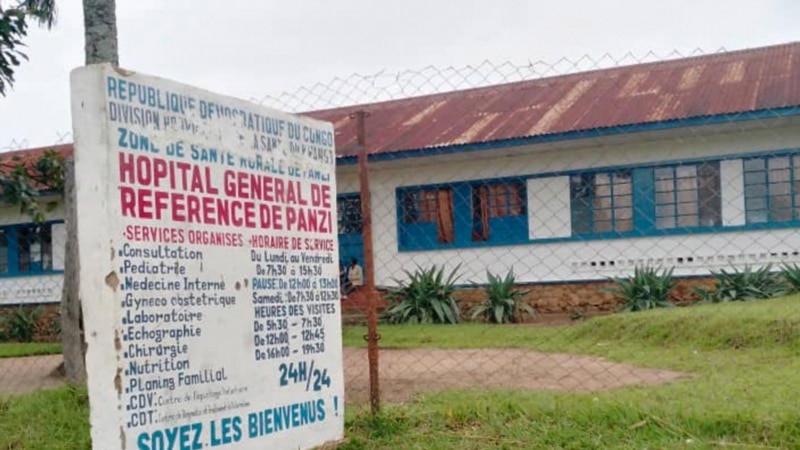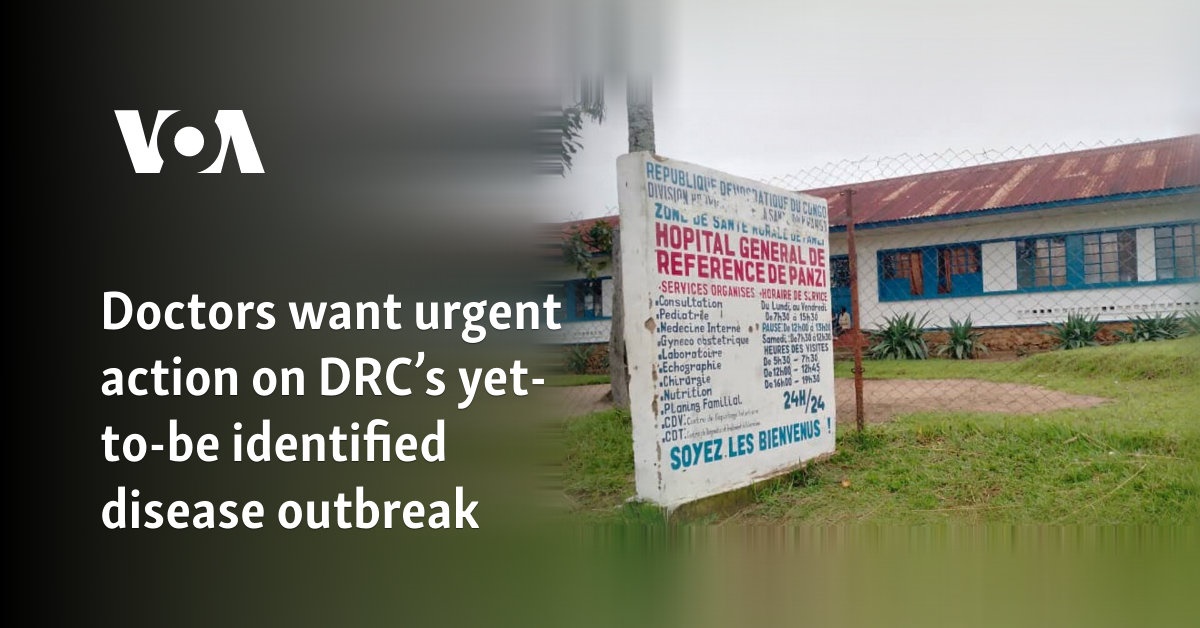This website uses cookies so that we can provide you with the best user experience possible. Cookie information is stored in your browser and performs functions such as recognising you when you return to our website and helping our team to understand which sections of the website you find most interesting and useful.


Africa’s Center for Disease Control and Prevention — Africa CDC — says it is working to identify a new disease in the Democratic Republic of Congo that has claimed at least 79 lives and infected hundreds more.
Dr. Jean Kaseya, director-general of Africa CDC, told reporters Thursday from the DRC that his organization is working with Kinshasa authorities to identify the disease and its causes.
Kaseya made it clear that he wants fast results from doctors, researchers and medical organizations.
“How can we accept to have five to six weeks of delay?” he said. “It’s just because the surveillance system is weak. We are still waiting to know what is going on. We do not want to see another disease that will be another five to six weeks before official notification. Regarding this Disease X, we say we are waiting for results from the lab — either tomorrow [Friday] or on Saturday, to know what is going on.”
The Africa CDC is calling it Disease X until lab results can reveal more. The disease was identified in late October in the Panzi district of Kwango province on the border with Angola.
The World Health Organization’s Regional Office for Africa said Friday it is sending experts to help investigate. The disease causes flu-like symptoms. WHO says the cause is unknown, but it will be investigating influenza, COVID-19, malaria or measles as possibilities.
Dr. Norman Matara, secretary-general of Southern African Association of Doctors for Human Rights, urged people in the DRC and the region to remain calm but improve their hygienic practices.
“We also encourage governments to strengthen their surveillance at ports of entries, so that unusual illnesses can be reported to health authorities. We also call for a coordinated approach led by the African CDC so that we can quickly identify this disease and prevent further loss of lives through a global outbreak,” Matara said.
Dr. Akili Cishugi Francis, the coordinator of a Kinshasa-based NGO, Action Asante, said stronger action is needed, especially when symptoms of the disease appear.
"This includes rigorous hygiene, drinking water, the isolation of suspected cases, and compliance with the instructions given by medical teams present. We also raise awareness of the importance of quickly reporting any suspicious symptoms like fever, cough, running nose, anemia, to health authorities,” Francis said.
People with the disease also experience headaches and breathing difficulties.
The Africa CDC says the disease is affecting mainly young people, many of them children younger than 5 years old.
Kaseya noted that having labs in different parts of the DRC is important, not just for Disease X but for subsequent outbreaks.
“You see the difference between the number of cases and confirmed cases, because we have a major issue regarding the lab. We need to have a strong lab capacity in DRC but also the distance — the DRC is a big country, but infrastructure is not at the ideal level,” he said. “Less than 35% of all samples are reaching labs in the 48 hours recommended. It means we are facing the quality [issues] of the samples, and this one is a major issue we need to address quickly.”
Meanwhile, the DRC continues to fight the mpox outbreak, which has affected 20 African countries, according to the Africa CDC. Since January 2024, 62,171 cases and 1,200 deaths have been recorded.



 Africana55 Radio
Africana55 Radio 
